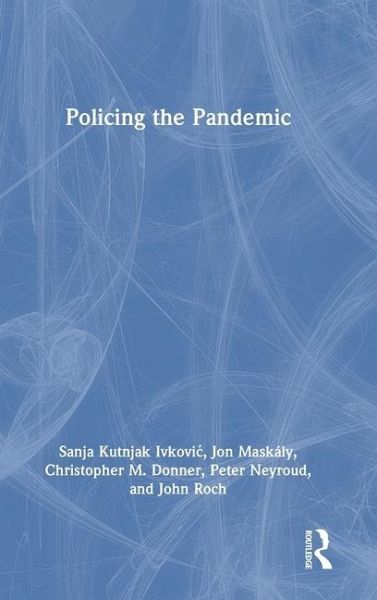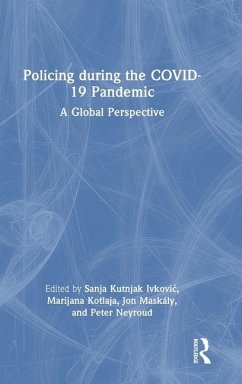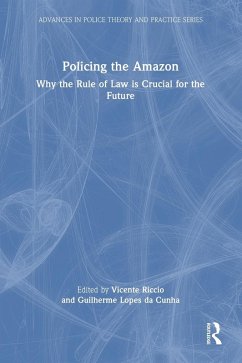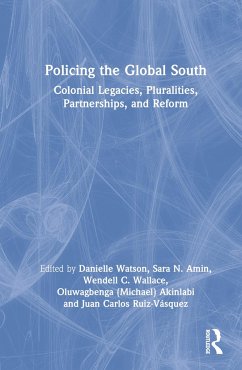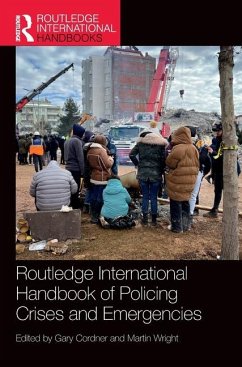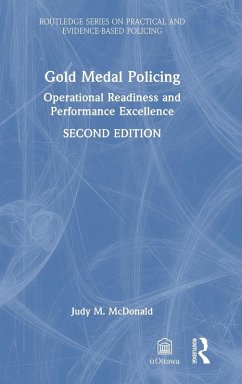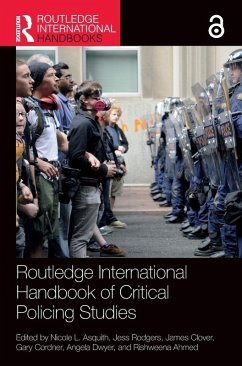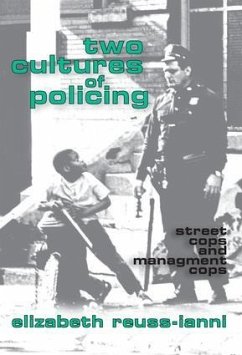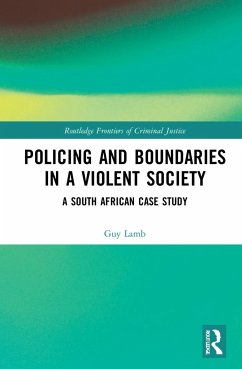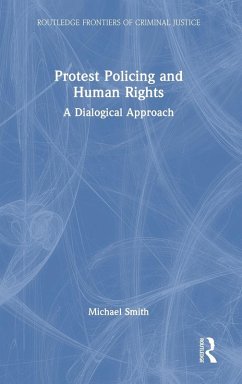Policing the Pandemic
Versandkostenfrei!
Versandfertig in 1-2 Wochen
Weitere Ausgaben:

PAYBACK Punkte
75 °P sammeln!




This book explores how police agencies in United Kingdom and the United States have adjusted to their changing environments, both during the peak of the COVID-19 pandemic and later, when the restrictions have been relaxed and the societies have begun to develop their new normal.
Sanja Kutnjak Ivkovi¿ is Professor at the School of Criminal Justice, Michigan State University, USA. She is the Co-Editor-in-Chief of Policing: An International Journal. She received the 2017 Mueller Award for Distinguished Contributions to International Criminal Justice, Academy of Criminal Justice Sciences International Section. Her book Reclaiming Justice (2011; with John Hagan) won the 2014 Academy of Criminal Justice Sciences International Section Book Award and was the Finalist at the 2011 American Society of Criminology International Division Book Award. Her book Police Integrity in South Africa (2020; with A. Sauerman, A. Faull, M. Meyer, and G. Newham) won the 2022 Academy of Criminal Justice Sciences International Section Book Award. Her publications include books, journal articles, and book chapters on police integrity, ethics, and accountability. Jon Maskály is Assistant Professor in the Department of Criminal Justice at the University of North Dakota, USA. He won (with co-authors) the 2016 William L. Simon Outstanding Paper Award from the Academy of Criminal Justice Sciences and, in 2014, the Outstanding Reviewer Award for reviews completed for Policing: An International Journal of Police Strategies and Management. His primary research interests revolve around issues in policing, notably police-community relations, police integrity, and police accountability. His recent publications have appeared in the Journal of Criminal Justice, Journal of Interpersonal Violence, Policing and Society, International Criminal Justice Review, and Policing: A Journal of Policy and Practice. Christopher M. Donner is Associate Professor and Chairperson of the Department of Criminal Justice and Criminology at Loyola University Chicago, USA. His main area of research focuses on policing issues, with a particular emphasis on police integrity and misconduct. His recent publications have appeared in a variety of peer-reviewed journals, such as the Journal of Criminal Justice, Policing and Society, Social Science Quarterly, Deviant Behavior, and the George Mason Law Review. He is a member of the American Society of Criminology, the Academy of Criminal Justice Sciences, and the Midwest Criminal Justice Association. Peter Neyroud is Associate Professor in Evidence-Based Policing in the Jerry Lee Centre for Experimental Criminology, University of Cambridge, UK. He is the General Editor of the Oxford Journal Policing: A Journal of Policy and Practice. His research focuses on experimentation, police diversion of offenders, crime harm, police ethics, community policing, the effect of COVID-19 on policing, and police leadership and management. He was a police officer in the UK for more than 30 years, serving in Hampshire, West Mercia, and Thames Valley (as Chief Constable). He set up and ran the National Policing Improvement Agency (as Chief Constable and Chief Executive). His publications include books and articles on policing, ethics and human rights, police leadership, experimentation in policing, and police-led diversion. John Roch is Detective Superintendent in the Metropolitan Police London and is a graduate of the Senior Leaders Master's Degree Apprenticeship in Applied Criminology and Police Management delivered at Cambridge University. He specializes in covert policing tactics and serious organized crime investigations and is currently the Head of Economic Crime, which includes fraud and money laundering portfolios. He studied COVID-19 policing engagements in London during 2020 and 2021.
Produktdetails
- Verlag: Routledge
- Seitenzahl: 328
- Erscheinungstermin: 19. Juni 2024
- Englisch
- Abmessung: 240mm x 161mm x 22mm
- Gewicht: 658g
- ISBN-13: 9781032305073
- ISBN-10: 103230507X
- Artikelnr.: 70288646
Herstellerkennzeichnung
Libri GmbH
Europaallee 1
36244 Bad Hersfeld
gpsr@libri.de
Für dieses Produkt wurde noch keine Bewertung abgegeben. Wir würden uns sehr freuen, wenn du die erste Bewertung schreibst!
Eine Bewertung schreiben
Eine Bewertung schreiben
Andere Kunden interessierten sich für




